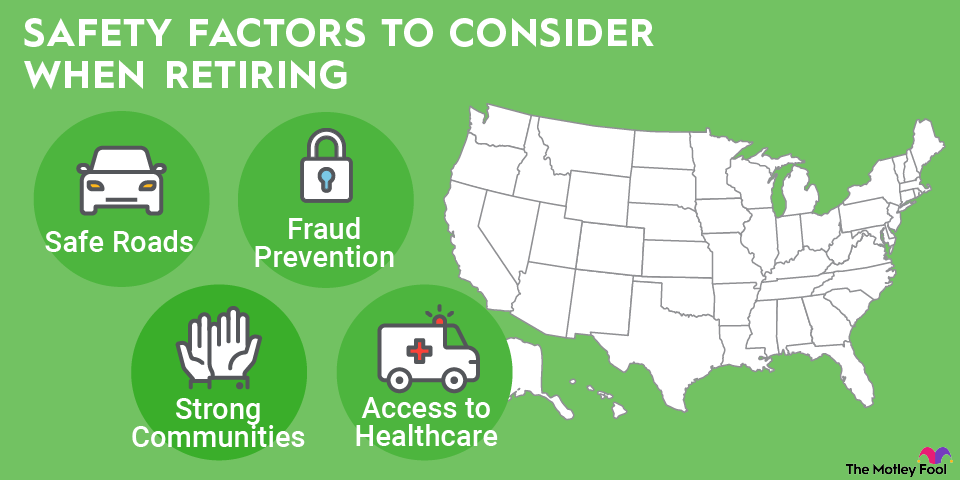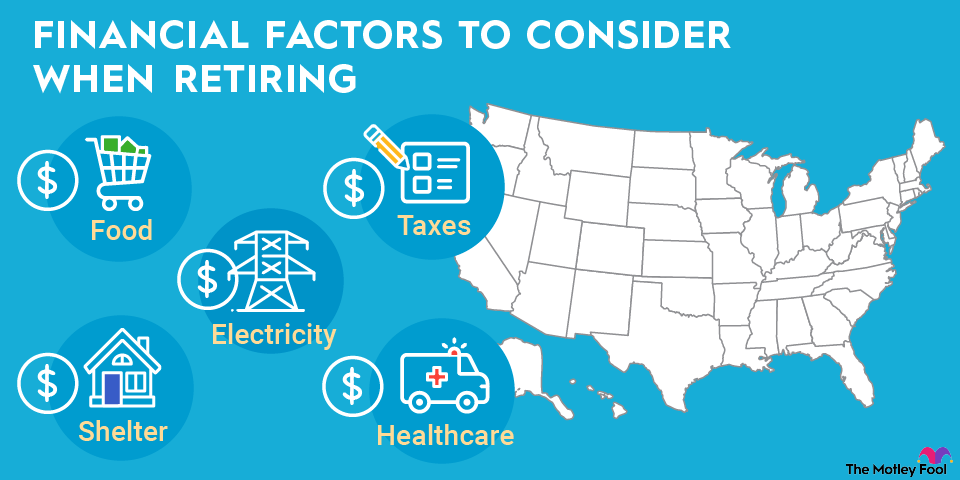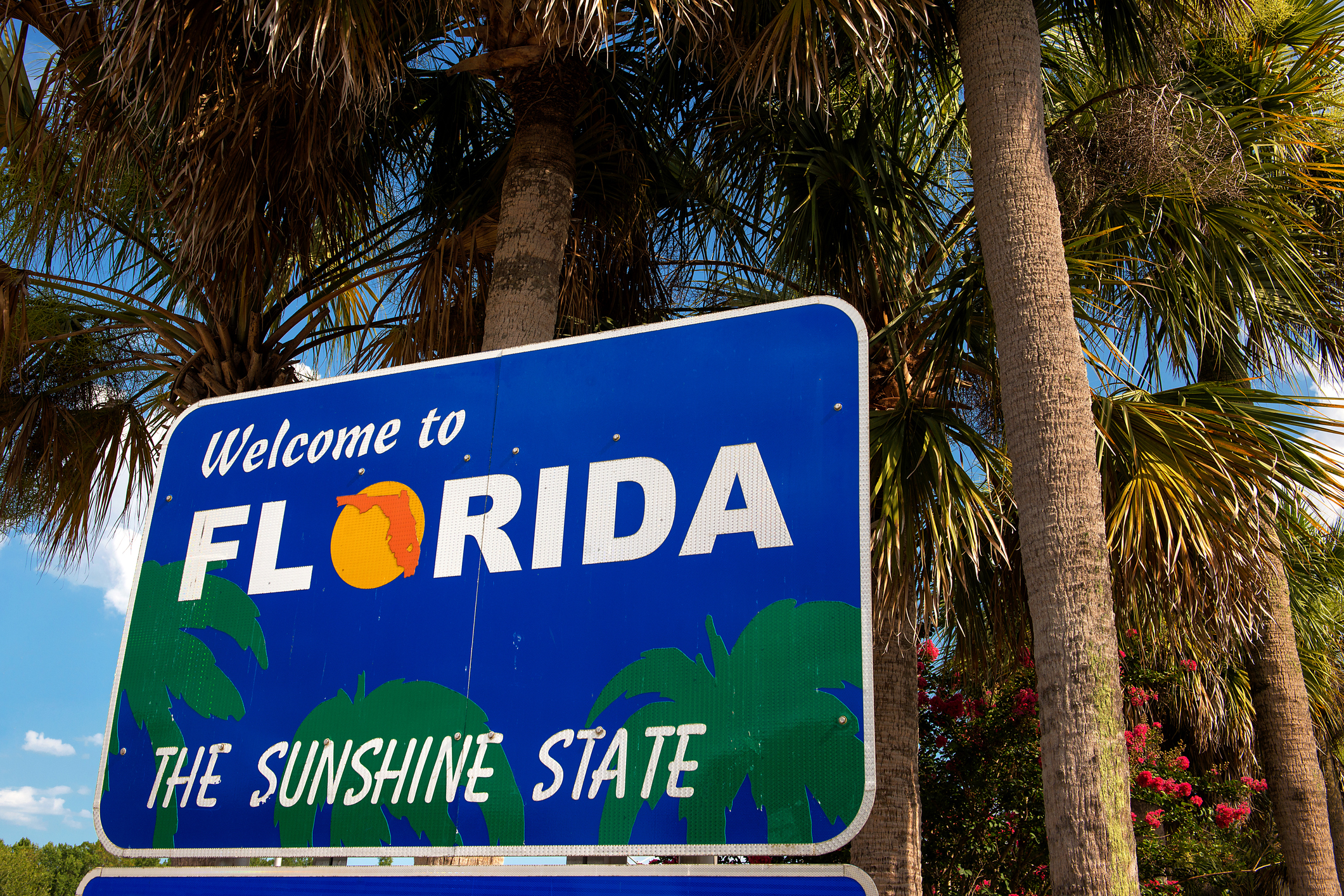Relocating for retirement may be appealing for a host of reasons. Maybe you're looking to lower your cost of living, or perhaps you want to embrace the newfound freedom you have when you're no longer tied to a job.
If you're thinking of making a move, there are a few steps to take first, though -- including carefully considering the pros and cons.
Here's what you need to know before you decide that moving in retirement is right for you.

Understanding retirement relocation
While moving in retirement may seem like an attractive option, very few older adults actually make this lifestyle change.
In fact, Harvard University's Joint Center for Housing Studies revealed just 6% of households headed by someone 65 and over relocate.
For retirees who do make a move, Florida and North Carolina were the most popular destinations in 2025, while Southwestern Cities like Mesa, AZ, and North Las Vegas in Nevada also saw a large influx of seniors.
But retiring abroad also appears to be spiking in popularity. The Social Security Administration reported that more than 760,000 beneficiaries living abroad receive Social Security payments each year -- a large increase from the 307,000 figure in 2008. That's likely an underestimate, though, since many expats have their Social Security checks deposited into a U.S. bank account.
Steps to take before relocating for retirement
There are a number of factors, both financial and nonfinancial, to consider before relocating for retirement. Here are six essential steps to take in deciding where to live as part of your retirement planning.
1. Do a test run
You may think you want to retire to Florida because you enjoy vacationing there. But have you ever survived a summer of 100-plus-degree temperatures, mosquitoes, and multiple hurricanes?
Before you permanently uproot your life, consider an extended trial run in your prospective retirement destination. Renting for several months or a year will give you a better sense of what it's actually like to live there.
Talk to the locals about what they love, along with their pain points. For example, many Floridians will tell you that they love the beaches, the warm winters, and the lack of a state income tax, but they've also been hard-hit by soaring property tax rates, high HOA fees, and expensive homeowners' insurance. Proposals are on the table to limit or eliminate property taxes in 2026 for full-time residents, but it is unclear if reforms will be successful.
2. Compare overall housing costs
Many people have built significant home equity by the time they retire. Cashing in and buying a smaller home for retirement could free up money in your budget.
But don't just look at home prices. It's essential to consider the overall costs of housing, including property taxes and insurance. If you will need a mortgage, also consider that you'll likely pay a substantially higher interest rate if you locked in a low-interest mortgage during the pandemic or in the pre-pandemic era.
If you're considering a move to a condo or homeowner's association, don't forget about the association fees. Also, consider the potential financial hit in the event of a special assessment.
3. Look at the entire tax picture
If you're worried about taxes in retirement, your first impulse may be to move to a state with no state income tax. Or you may be toying with the idea of moving to a country with generous tax incentives for foreigners.
But be sure to consider the entire tax picture, including income taxes, property taxes, and sales taxes. States with no income taxes often have to levy higher property taxes or sales taxes.
Buy-and-Hold Strategy
4. Assess your healthcare needs
Since your healthcare needs typically increase later in life, be sure you'll have access to adequate medical care. You may want to confirm before moving in retirement that your new location has a nearby hospital and that there are available providers if you require specialist care.
Also, if you retire abroad, you'll need to pay for health insurance since Medicare doesn't pay for overseas care. People retiring abroad also need to decide whether to enroll in Medicare Part B. If you decide not to enroll in Part B and then return to the U.S., you'll pay a permanent penalty.
5. Consider transportation access
Transportation access is an important consideration both for your finances and overall lifestyle. If you move somewhere with a robust public transportation system, you may be able to go carless or at least get rid of one car if you and your partner each have vehicles. A community that's pedestrian- and bicycle-friendly can also help you save money and be great for your physical health. But you could need to budget extra for transportation if you're moving in retirement to a community where you need to drive most places.
Proximity to an airport is another factor to weigh, particularly if you hope to get frequent visits from family and friends or you're hoping to travel more when you retire.
6. Don't forget about the pets
Many people are empty nesters by the time they retire. But your pets are part of the family, too, so don't forget to think about what moving in retirement will mean for them.
If you're moving somewhere with a condo or homeowner's association, be sure you understand their pet policy. Many associations have breed or weight restrictions and limit the number of pets you can have. Making a plan for pets is especially important if you're retiring abroad, as moving animals across borders can get complicated.
Savings Account
Pros and cons of moving for retirement
Moving for retirement may seem like a dream come true, but it's important to be realistic. Here are a few pros and cons.
Pros
- You can save money if you choose your destination carefully. If you move somewhere with lower living costs and taxes, you may be able to afford a more comfortable retirement.
- You can choose a community based on the amenities that matter to you. Sometimes, you wind up living somewhere that isn't your top choice because of job requirements. But when you move for retirement, you can give your lifestyle preferences greater weight. For example, many seniors gravitate toward communities with warm weather and access to amenities like golf and tennis.
- There's less at stake. There's always a chance that you won't love the community where you retire. During your working years, a move can mean changing jobs or taking your kids out of school. But when you move in retirement and decide you're not in love with your new home, you can try again without as many logistical issues.
Cons
- Less time with family and friends. Unless you're moving to be closer to loved ones, relocating often means less time with family members and friends. You may also incur additional costs if you plan to travel home for visits frequently.
- You may not love living where you vacation. It may be tough to gauge whether your retirement destination is a good place to live if you've only vacationed there.
- Downsizing may not yield the cost savings you expect. Some pockets of the country that have long been considered affordable retirement destinations, like Florida and Arizona, have seen a surge of out-of-state transplants. Housing costs have soared in many of these areas as well, so buying a smaller residence may not save you quite as much as you expected, especially if you have to take out a mortgage at a higher rate. You may also find that other costs, like insurance or property taxes, are higher.
Related investing topics
Should you consider relocating for retirement?
Relocating for retirement has the potential to make your golden years more affordable, especially if money in your retirement accounts is lacking. Once you're no longer working, retirement can also provide you with the freedom to live wherever you want.
But be sure to weigh the financial and nonfinancial costs. Moving to a cheaper city may save you money, but it may not be worth it if you rarely get to see your loved ones and you can't pursue the hobbies you enjoy. On the flip side, you may think that a place is cheap due to the low taxes and housing costs, but discover you pay more for other costs, like insurance and transportation.
Whenever possible, try renting in the place you want to move to in retirement for several months to see if it's deserving of the hype. If you find that it isn't what you hoped, you can test out another location without incurring the substantial costs of a permanent relocation.






